When am I gonna stop being wise beyond my years?

Shun wears jacket FILA F-BOX ANNIVERSARY COLLECTION and jeans and shoes talent’s own
In 2024, being a teenage girl means dealing with social media, body image, politics and misogyny – not to mention homework and friendships. It’s not easy. But it’s not without hope.
Life
Words: Olive Pometsey
Photography: Eileen Perrier
Styling: Lulu Bullock
Taken from the new print issue of THE FACE. Get your copy here.
It’s last October half-term, that week-long circuit-break in the tedious stretch of time between the summer holidays and Christmas, a moment of respite for students and teachers alike as they trudge towards the new year. But Nishi, 14, doesn’t have time for much fun.
“I have mocks in two weeks so I have to study,” she half-whispers. She’s now a month into Year 10 and is getting her first taste of revising for the big exams that will shape what happens in the next stage of her life. Nishi fancies herself as a software engineer, so it’s important that she does well in IT. “I’m a bit scared, to be honest,” she says, looking down at the fingernails she’s currently picking at.
“Everyone says you don’t have to worry because they’re only mocks, it’s not that big of a deal. But still, I want to get good results.” Big sister Maisha seems more relaxed. It’s perhaps because her GCSEs are behind her and she’s in the middle of her first term at college, where she gets two extra days off in the week. She’s studying creative media with a view to getting into marketing. “When I was younger, I used to be obsessed with becoming a make-up artist,” says the 16-year-old. “But then I watched this Turkish drama Erkenci Kuş [Daydreamer] and the characters worked in a publicity business. I was like, that’s so fun!”
The sisters are from Bangladesh, but spent most of their childhood in Venice, before moving to Mile End, East London, in 2020. They preferred life in Italy. “People here are crazy, really weird. You go to central London and you have to be careful with your bag. People are, like, all over the place,” says Maisha, scrunching up her nose in disgust. And the kids at college? “They scream, they make noise for no reason, they are rude to teachers. I’d rather stay by myself than be with them.”
Nishi, who has been relatively quiet, letting her older sister steer the conversation, perks up to offer an equally cutting assessment of her classmates: “In my year, no one cares about education and stuff. Half of the girls only care about boys and vapes.”

Laila wears jumper C.P. COMPANY and trousers talent’s own
The world of teenage girls has always been propelled by bubbling, electric, nervous anticipation. For the first kiss, for the exam results, for the version of yourself who will have everything figured out when you’re older. Some see vapes, make-up and boys as a direct route to growing up quicker. Others study hard and bide their time, laying down, they hope, the foundations for adulthood. A few, bravely, attempt both. Whichever way, teenage girls are experts at looking both inwards and forwards, carving identities and fashioning futures through daydreams and Pinterest boards. It’s not easy, of course. Being a teenager never has been.
But right now, in 2024, young girls are arguably facing more challenges than ever before. On top of age-old burdens such as homework and friendships, this generation is coming of age in a society in flux, absorbing new anxieties around body image, politics and rising misogyny, mostly filtered through social media. Not to mention, of course, the planet-sized angst of wars in multiple directions. For teenage girls, violence is global and local, on their phones and in their bedrooms.
“Recently, my TikTok For You page was full of [videos about] a girl who got stabbed because she refused someone’s flowers,” says Maisha, one of a group of teenagers we’ve invited to a community centre in the Isle of Dogs, East London, for discussions about the issues that are most pressing for girls their age. “A few months ago, we heard someone got stabbed in Bow, too – we literally live five minutes away. It’s so scary.”
The girl on her TikTok feed was Elianne Andam, a 15-year-old in Croydon who, in September, was murdered on her way to school. It’s believed Andam was trying to save her friend, who had moments before the attack rejected the advances of the 17-year-old charged with her murder (his trial is next April). The tragic incident reignited concerns that violent misogyny has risen among young boys in recent years, fuelled by incel culture and toxic influencers such as Andrew Tate.
Has Maisha noticed a change in the behaviour of boys at her college? She shrugs. “I just don’t look at them.”

Aya wears jacket C.P. COMPANY and trousers talent’s own, Lila wears jacket C.P. COMPANY and trousers talent’s own
Later in the day, Shun, 14, tells me that she’s adopted a similarly indifferent approach towards dealing with boys. “I don’t really talk to them.” She wriggles in her seat and tugs at the sleeves of her polo neck, pondering the Tate disciples who are her age. “I don’t know if they really believe in sexism or if they just make jokes to seem hard or something.”
It doesn’t bother Shun too much, not least because she’s currently “trying to work on [myself]”, making a concerted effort to stay out of drama at her girls’ school in central London. “But it keeps finding me!” she gasps, throwing her hands up, half-exasperated, half-amused. She can’t even escape the rumour mill when she goes home. “I was in a relationship at school and it’s a bit messy. I’m trying to stay out of it, but this girl made TikTok videos about me.”
Avoiding social media isn’t really an option – Shun says that her screen time peaked at an admittedly extreme 19 hours a day during the summer holidays – so she’s learning to take the high road instead. “I just think they’re stupid, like, what are you doing with your life?” she says, completely over it. “This doesn’t really matter. I’m not gonna know you after a year. I’m gonna leave school and I’m not gonna remember you.”
Still, it’s not doing wonders for her mental health. Shun is the baby of six siblings, living in central London with her parents and older sister Chun, 19, who’s chaperoning for the day. They both believe she has anxiety, but it’s currently undiagnosed because her mum “doesn’t want me to accept that I have it”. Statistically, though, it’s likely Shun is correct in her assessment of her mental health. A recent Girlguiding survey found that 89 per cent of girls and young women aged seven to 21 feel generally worried or anxious, with 61 per cent reporting that they often feel this way, if not most of the time.
“Especially around two, three years ago, I think everyone was in quite a dark place,” says 18-year- old student Ella. “I don’t know if that’s to do with lockdown or because you’re suddenly growing up around 15, 16.” Ella finished her A‑levels in the summer and eventually plans to study philosophy, politics and economics in Manchester (“I’m listening to a lot of Happy Mondays at the moment”). For now, though, she’s decided to stay at home with her parents and do an art foundation course in London. This is partly because she loves art and wants to get it out of her system, but if she hadn’t got on to the course she reckons she would have taken a gap year anyway.
“I feel like lockdowns stunted my growth. I definitely wouldn’t be ready to go to uni this year at all,” she says. Towards the end of the government’s coronavirus restrictions in 2021, the number of young people referred to the NHS’s mental health services increased by 134 per cent compared to the previous year. Ella was one of them. “My mental health was really not good at all. I think it was largely to do with lockdown, exams and there being a lot of change.”
She was referred by her doctor to the NHS programme CAMHS (Child and Adolescent Mental Health Services) for therapy sessions. Now, Ella says, she’s learned to deal with her emotions and stop her thoughts from spinning out of control. “I’ve heard so many people have had really bad experiences with CAMHS, so I was kind of dreading it. But I got so lucky with my therapist. It was so much work, but it really helped.”
It’s still a bit weird, though, watching all of her school friends go to uni while she’s still at home. “You can’t be like, ‘Oh, do you want to go get coffee?’, because they’re not there,” says Ella. Plus, she’s doing early morning shifts at a local café, which means she doesn’t go out as much as she used to. “I started going out when I was 13 or 14. We used to Photoshop our passports and think we could get away with it.” Speaking to Ella, at least, it seems that Gen Z’s appetite for booze is dwindling are perhaps overinflated. She shakes her head at the mention of her generation’s oft-reported alcohol abstinence. “I don’t feel like that at all. My [art school] friends go to the pub every day after college.”

Kita wears jacket GUESS USA and top and scarf talent’s own
There was an optimism to the teenage girls we spoke to for this piece, a sense that, despite everything, life isn’t so bad.
They’re smart, empathetic and switched onto social issues, almost universally expressing concern over the Israel-Palestine conflict; a few have written to their local MPs about it or attended marches in London calling for a ceasefire. They collectively roll their eyes at Andrew Tate-isms, dismissing them as fodder for immature 12-year- old boys, and are firm in the belief that while sex- ism is alive and kicking, it won’t hold them back. Some gush over Hailey Bieber (“If she touches anything, it’s trendy,” says Maisha), others prefer TikToker Anna Paul (“She’s literally my icon,” grins Shun). They plaster their bedroom walls with Frank Ocean and Call Me by Your Name posters, and spend hours hunting for bargains on second-hand shopping app Vinted. Friends, meditation and “mental health walks” help them through difficult times. Pretty much everyone admits that they need to spend less time on TikTok. For the most part, these girls’ worries revolve around their own lives. Not because they’re self-centred, but because figuring out their place in the world is their most important job at the moment. Will mistakes made now impact my life as an adult? Why does hanging out in big groups make me feel anxious? Do my rich friends judge me because my family’s not wealthy?
“I’ve always had pond scum complex so bad,” says 17-year-old Aya. Her friend Lila, 18, elaborates.
“It’s a feeling that won’t go away, that you’re worse or poorer than everyone else. It’s a delusion, basically, because obviously we’re in a place of privilege, living in Hackney.” Coupled with the fact that both girls are of colour and attended majority-white schools, they often felt either ostracised or tokenised in their friendship groups. Growing up, Aya never invited friends around to her house or talked about finances. Even now, as she’s got older and learned to care less about what other people think, it still feels awkward. “People come round and they’re like: ‘Oh my God, it’s so cosy!’” Money worries Lila, too, particularly when it comes to student loans. She’s taking a gap year, living at home while on an art foundation course like Ella. Ultimately, she wants to study anthropology at uni, maybe in Manchester, maybe Glasgow. “But I’m very scared of the debt. There’s always been anxieties about money in my family, so I’m wondering whether I want to [take out a loan],” she says. “Both of my parents are encouraging me to stay in London so I don’t have to pay for accommodation. But I think one of the only things making me want to go [to uni] is probably getting an escape from London.”
They’re not too fussed about marriage or kids. The way Aya and Lila see it, the only interesting thing about children is the opportunity to live vicariously through them or buy the “little Missoni dresses” in the kids’ section of their favourite vintage shop. “But we could just become, like, kid stylists,” suggests Aya, laughing. More than anything, they want to make lots of money. “My dream life is being rich and happy, living in a mega studio apartment with big windows and lots of empty space,” says Aya. “I feel like I’ll succeed in life when I can do a cartwheel in my living room.” “Yeah,” agrees Lila. “Having a job that you’re passionate about and getting good money. I don’t know, I just like the idea of having money. Some people don’t care about it but…”
It makes life easier. And while money may not matter to everyone, Aya and Lila’s ambitions are reflective of a broader shift in teenage girls’ priorities. In 2009, the most important goal for girls and young women to achieve by the time they turned 30 was to have a partner or be married. Fifteen years later, statistics show they’re more focused on owning a house – which, in London, feels as unattainable as little girls’ age-old dreams of being a pop star or princess.
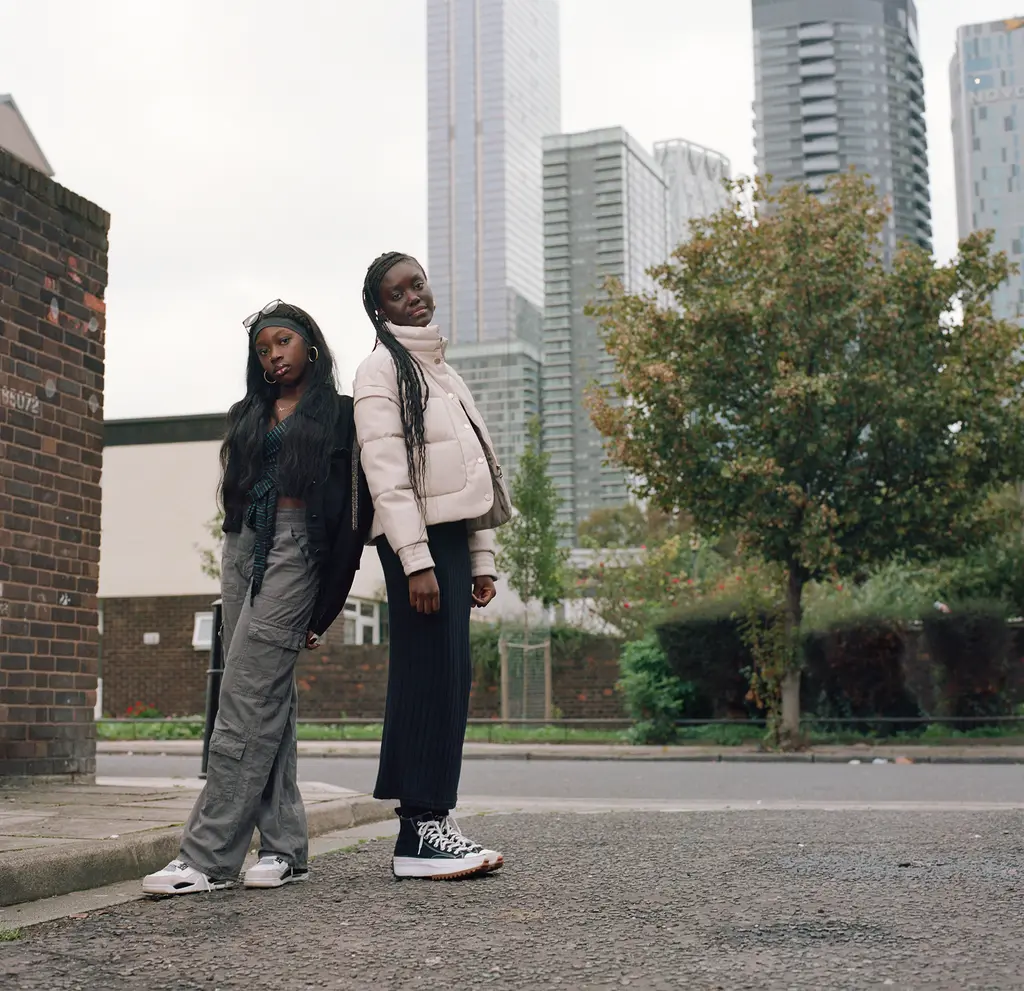
Nyanya wears jacket, top, trousers and shoes talent’s own, Abie wears jacket GUESS and top, trousers and shoes talent’s own
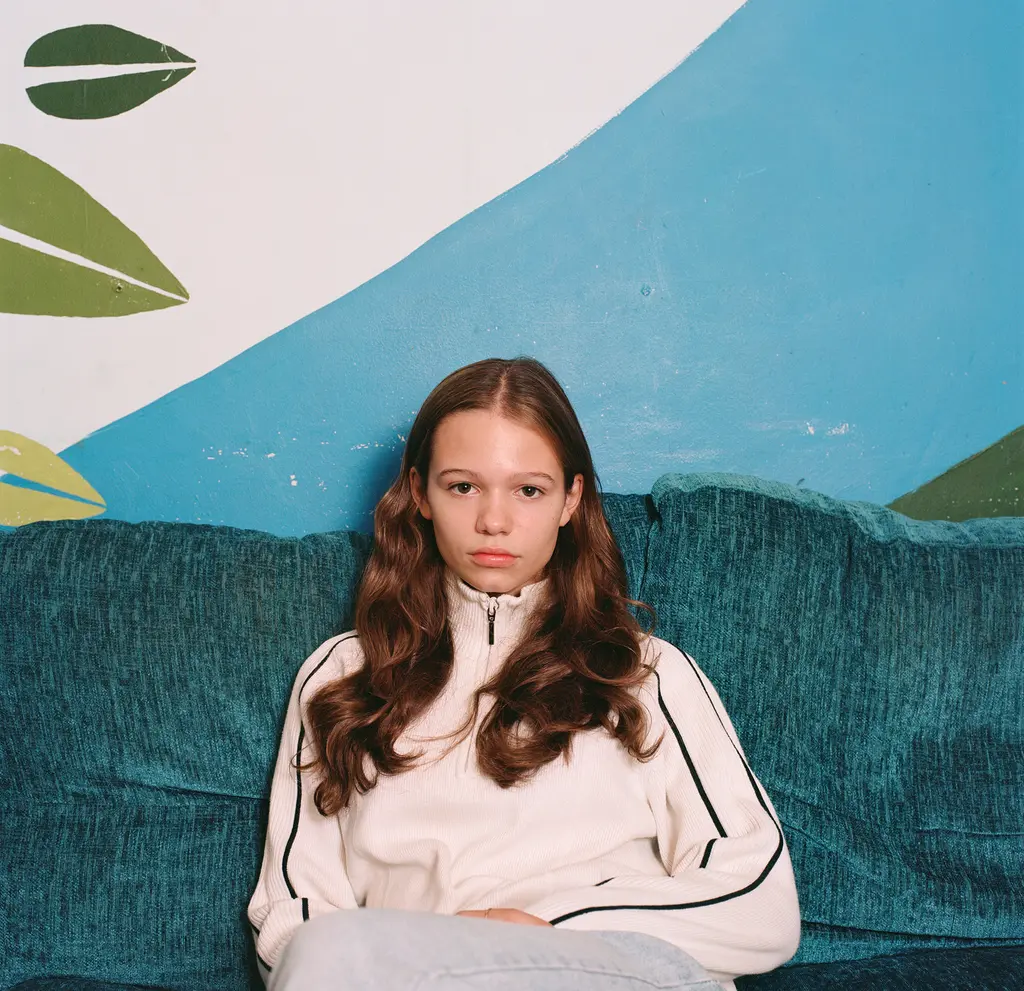
Kaja wears jumper and jeans talent’s own
Maisha and Nishi both fantasise about having more money, too. “So I can travel wherever I want without having to look at how much I have in my bank account,” says Nishi. Maisha chips in: “Or not feel guilty when you’re spending money [that was given to you] from someone else.” Nishi wants cash to buy a new bookshelf, but Maisha has her sights on a more luxurious purchase. “If I was 18, I would have my driver’s licence and get a car. A Ferrari F8… in red of course.”
Nineteen-year-old Kita does find it hard to imagine what her life might look like in the future. Everything is already moving so fast.
“Every year I change and develop so much as a person. In five years’ time, I don’t think it’ll be anything like it is now,” she says. This past year has already been one of self-discovery and growth. Last January, she finally found her tribe when she was introduced by a friend to London’s queer ballroom scene. And now that she’s finished college, she’s taking a year out to fully immerse herself in the culture.
“I knew what ballroom was from TV: Paris is Burning and Pose. But I didn’t know much about the London scene,” says Kita, who competes as a femme queen, on account of the fact she’s trans. When we speak she’s in the middle of prepping for the Halloween Ball, making an Edward Scissorhands-inspired look from scratch, complete with rhinestones, a lace gown made from £3‑a-metre fabric from Walthamstow Market and rolled-up laminated sheets for, well, the scissorhands. “The scene is made up of gay men and trans women, mostly POC. I went into it and just saw loads of people like me.”
Because even in the UK’s capital, as a teenager coming to terms with her identity finding trans role models to look up to wasn’t easy.
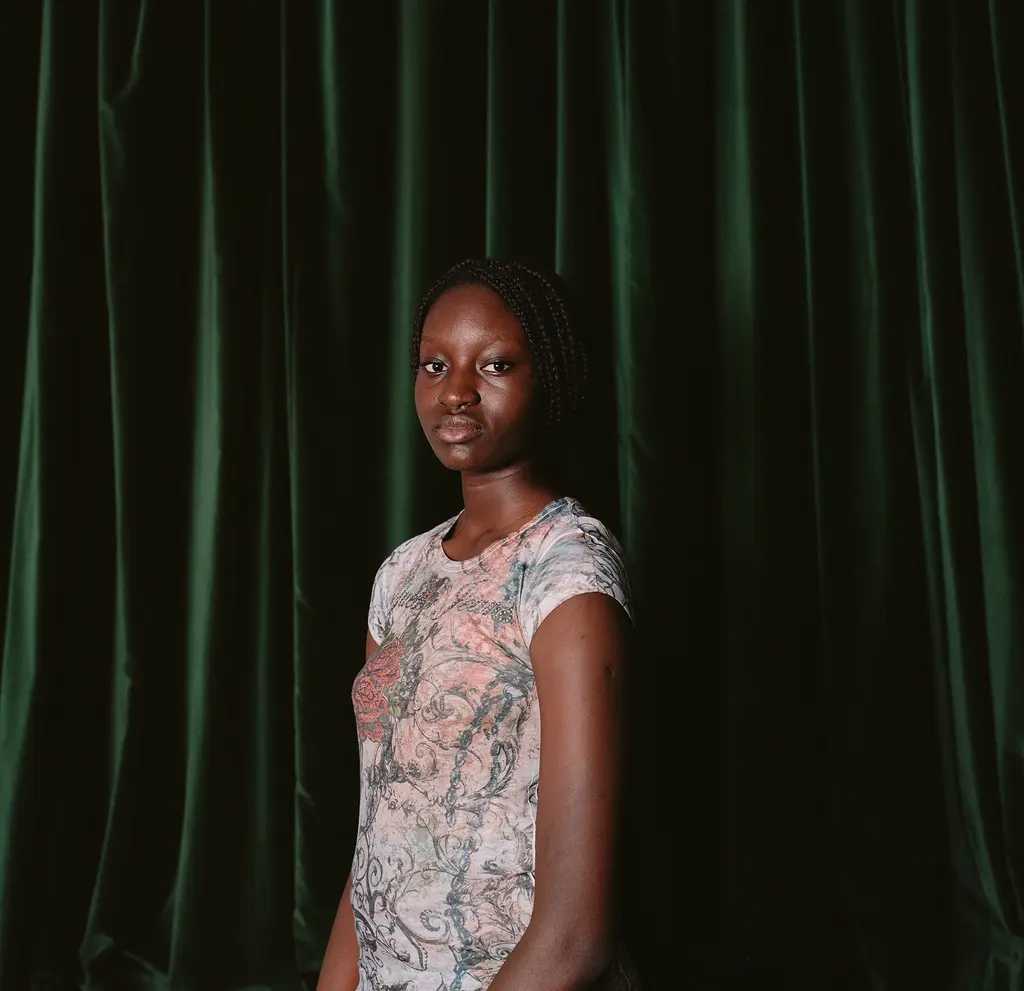
Fatima wears top GUESS USA

Anjeli wears bustier GUESS USA and T‑shirt (worn underneath) and trousers talent’s own, Rachel wears jacket GUESS USA, jumper PAUL & SHARK and trousers talent’s own
“A lot of queer POCs come from environments where there are so few people like them,” she says. Kita grew up with her mum and siblings in Leytonstone, where she still lives, and although everyone around her has always been supportive and accepting of her identity, coming to terms with it herself, while simultaneously trying to make friends and stay on top of school, was a challenge. “I felt very isolated. I went through phases of having no friends or a few friends,” she says of the period just before she began her trans journey. “Before I was able to express myself, I had that discomfort around myself, so I couldn’t be around other peo- ple.” Things got better for a while at 14, when she moved to the Brit School in Croydon to study visual art and design, “until I started my trans journey”.
Teachers didn’t understand why it was suddenly hard for her to concentrate on her studies. But Kita was equally frustrated that she had to turn all her attention towards figuring out who she was. “I wanted to focus on art so much, so having to suddenly focus on my identity was really difficult because it shifted what I had to hold importance to. I had to start my journey of self-reflection. My mental space was kind of corrupted by [trying] to understand myself in a way I never had before. It’s a big thing to go through as a teenager.”
In the UK, only three per cent of LGBTQ+ girls and young women consider themselves to be happy. They’re more likely to feel lonely or, unlike their cis-het peers, that they’re not good enough. It probably doesn’t help that they’re coming of age at a time when trans people’s very existence is constantly being debated and used as a political football by MPs and the media. Case in point: Rishi Sunak at a Tory conference in October, smirking as he told the crowd that “we shouldn’t get bullied into believing that people can be any sex they want to be.” That line of thinking has flooded public discourse over the past few years, directly correlating to a sharp rise in hate crimes against trans people in 2023.
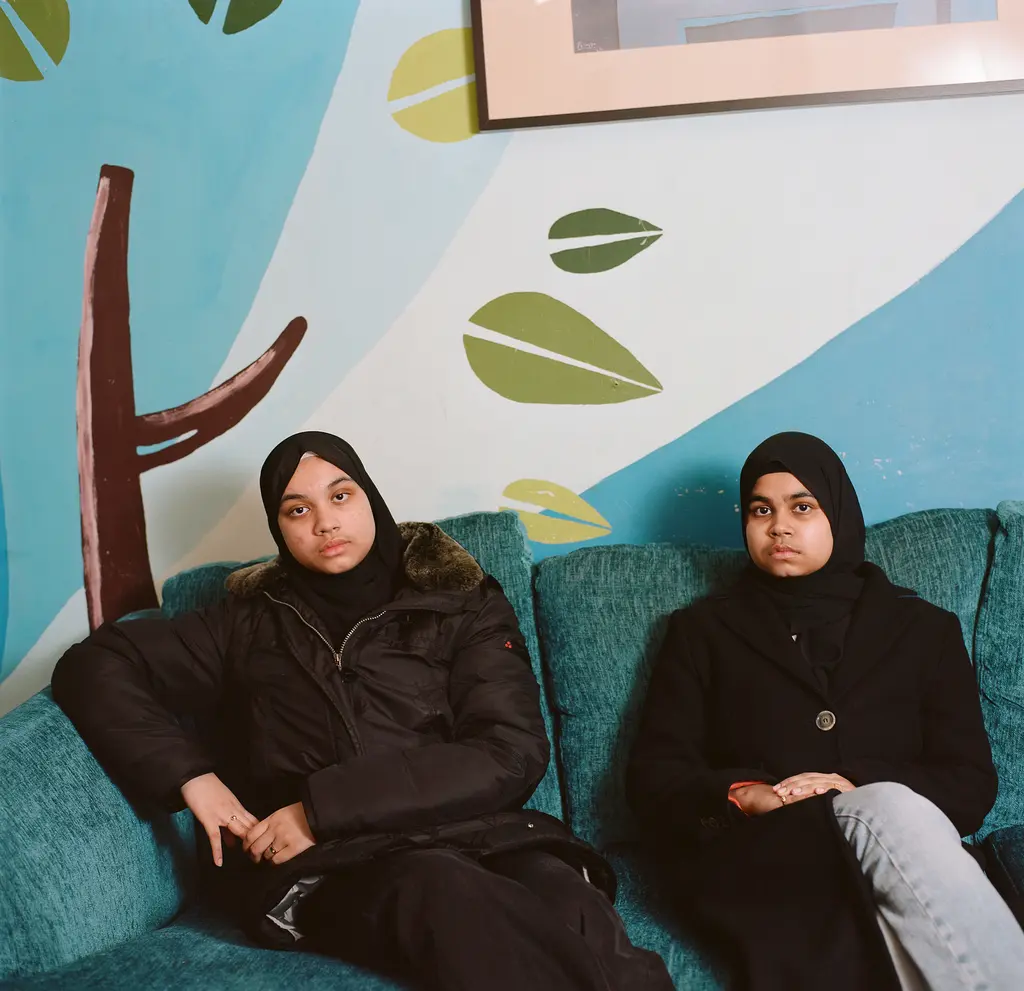
Nishi and Maisha wear all clothes talent’s own
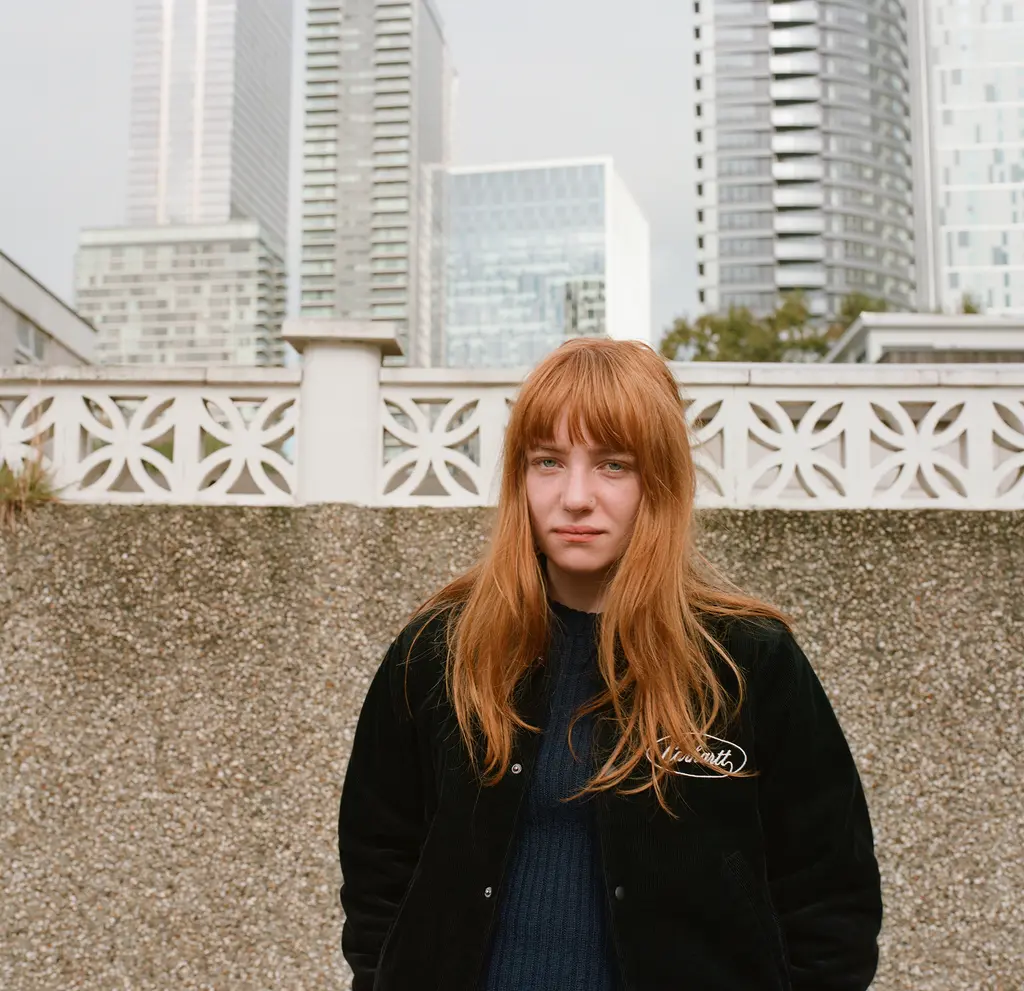
Ella wears jacket CARHARTT WIP
“Being trans is very difficult at the moment, because of the narrative the government is trying to push on us,” says Kita. “It does make trans people like me feel a bit powerless. I try not to look at it too much, because it’s quite upsetting. But that’s why queer spaces, queer visibility and trans visibility are so important.”
Kita doesn’t harbour lofty dreams of sports cars and massive flats. What she wants most in life is to become a role model for the next generation of trans kids. Maybe, she thinks, a way to achieve that goal could be to compete in the global drag beauty pageant Miss Continental.
“I want to be big enough so that other trans people can see me. Because seeing someone that looks like you is just amazing. There aren’t that many [people like that] right now for me,” she says. “Being that for someone else would be a great honour.”
Perhaps the scariest thing about being a teenage girl is also the best part: nothing is set in stone, the future is still a series of ifs and maybes. You can always resit exams, make new friends, discover new parts of your identity. No one’s denying that it’s difficult to be a teenage girl right now. And certainly no one but teenage girls needs to be telling us exactly how challenging their lives are. But the teenage condition should still be now what it’s always been: a state of hope, optimism and possibility. A stage when life’s not yet too hard to picture it getting better one day, when you finally leave home, get the keys to that shiny red Ferrari or win the crown at Miss Continental. Some things will never change. It’s still easy to dream big.
Credits:
Casting director Lisa Dymph Megens producer May Powell photographer’s assistant Jack Lewis







